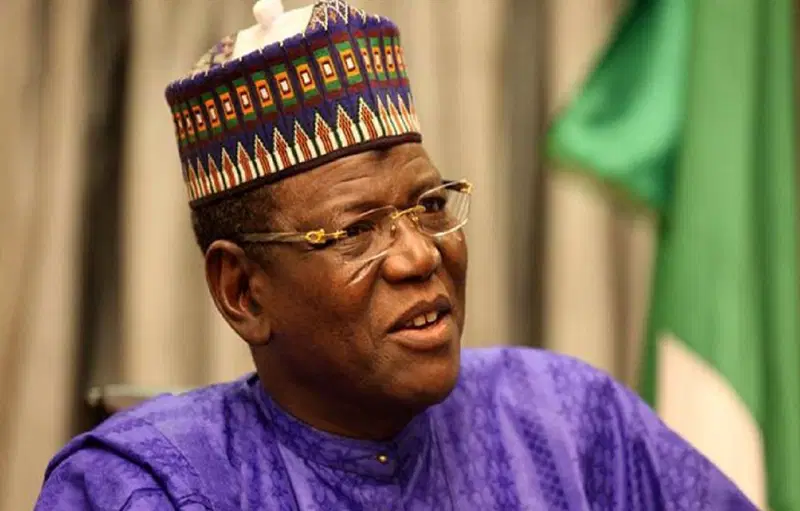Sule Lamido’s autobiography, “Being True to Myself,” unveils a compelling anecdote from Nigeria’s political landscape, shedding light on a clandestine attempt to influence the selection of Olusegun Obasanjo’s running mate during the transition to civilian rule in 1999. Lamido, the former governor of Jigawa State, recounts a meeting with Abba Kyari, who later served as Chief of Staff to President Muhammadu Buhari, where Kyari allegedly offered a substantial bribe of N160 million to secure the vice presidential slot for himself. This incident, occurring during the formative stages of the People’s Democratic Party (PDP), underscores the intricate power dynamics and ethical dilemmas that characterized Nigeria’s nascent democracy.
The context of this encounter is crucial. Nigeria was emerging from a prolonged period of military rule, and the political atmosphere was charged with anticipation and uncertainty. The selection of Obasanjo, a former military ruler, as the PDP’s presidential candidate was seen as a strategic move to foster national unity and reconciliation. However, the choice of his running mate was equally critical, as it would significantly impact the party’s electoral prospects and the future direction of the country.
Lamido and Abubakar Rimi, the late former governor of Kano State, were prominent figures in the PDP and held significant influence within the party. Their endorsement of a vice-presidential candidate would have carried considerable weight. Kyari, seemingly aware of their political clout, approached them with a proposition that shocked and angered them. He presented a bank draft for N160 million, a staggering sum at the time, as a “contribution” to the party, ostensibly to cover campaign expenses. However, the underlying intention was clear: to buy their support for his vice-presidential ambition.
Lamido’s narrative vividly captures the indignation he and Rimi felt at this blatant attempt to subvert the democratic process. They viewed the offer as an insult to their integrity and a betrayal of the principles they stood for. Their refusal, delivered with righteous anger, exposed the underbelly of political maneuvering and the lengths to which some were willing to go to secure power. Kyari, accompanied by an intermediary who facilitated the meeting, left the encounter humiliated and empty-handed.
This incident raises several critical questions about the integrity of the political system and the role of money in influencing political decisions. The fact that such a large sum of money was readily available to be used as a bribe underscores the pervasive nature of corruption within the political landscape. It also highlights the vulnerability of the democratic process to manipulation by individuals with access to financial resources.
The narrative also provides insight into the character of Lamido and Rimi. Their rejection of the bribe showcases their commitment to ethical principles and their unwavering belief in the sanctity of the democratic process. They chose to uphold their values over personal gain, sending a powerful message that political office should be earned through merit and not purchased through illicit means. Their actions serve as a reminder of the importance of integrity and accountability in public life, particularly during periods of political transition and uncertainty. The incident remains a stark reminder of the challenges that continue to plague Nigeria’s political system. While the specific context may have changed, the underlying issues of corruption and the undue influence of money in politics persist, demanding continued vigilance and reform efforts.














